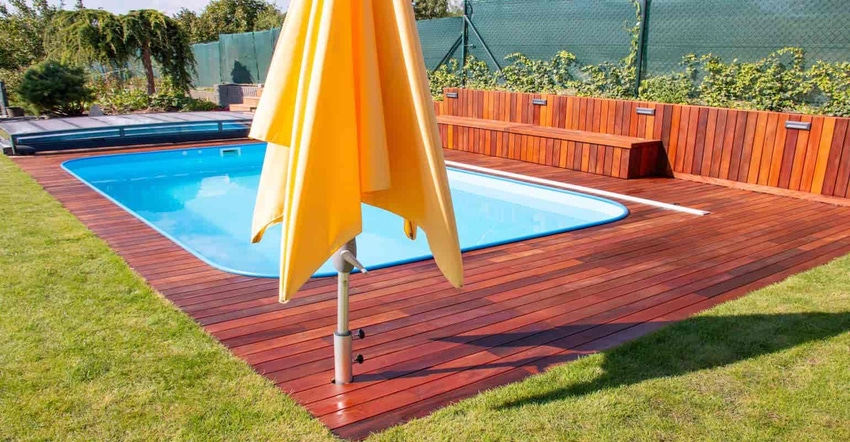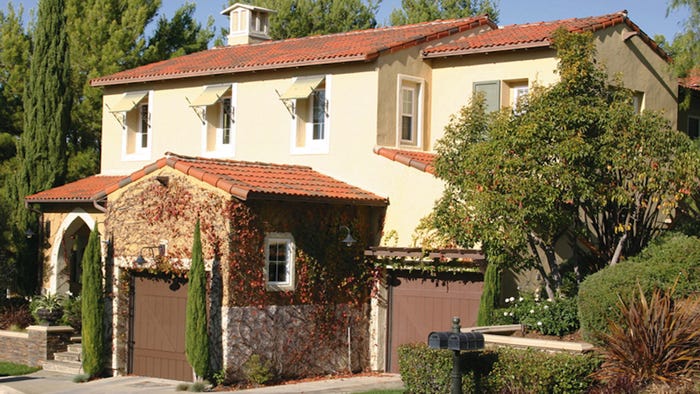Pool Decking Surfaces to Consider
There are many things to consider when choosing a pool decking material. Some key factors include maintenance, durability, safety and how the material fits in with your home and landscape.

Learn the pros and cons of different pool decking materials. We compare 3 different materials and review the maintenance, durability, safety and aesthetics of each.
1. Concrete: A reliable, durable option that provides plenty of decking design freedom
Poured concrete has been the material of choice for pool decking for decades because of its durability and water resistance. Concrete can also be finished using both colors—add dry-shake pigments to the wet concrete—and texture to create almost any look. Finish options for a decorative look include stamped, colored, stenciled, exposed aggregate and brushed.
Pros: Poured concrete can be formed into any shape, allowing endless possibilities for patterns and shapes. It's also easy to slope concrete, which is important for drainage.
Cons: Concrete shrinks as it cures, which can cause tension within the slab, increasing the likelihood of cracks. This is due to the evaporation of excess mixing water. Slabs can shrink as much as ½ inch per 100 feet. Make sure to account for this in your planning, should concrete be your client's preferred material.
2. Wood: An aesthetically pleasing material when updating an existing space
Pool decks constructed of wood are eye-catching. In addition, wood decking is a great way to update an existing concrete or brick patio as you can build the new decking over the old.
Pros: Many varieties of natural wood are available. However, the price varies significantly depending on the type of wood. Redwood or ipe are some of the most expensive types of wood, while pressure-treated wood remains the most affordable. Wood is also very easy to cut and fasten and allows the creation of unique designs.
Cons: Since wood is a product of nature, the annual application of a sealant is required. Splinters are also a threat with the use of natural wood.
3. Composites: A higher-cost decking option for greater durability and lower maintenance
While composite materials often cost more than wood, they offer greater durability and less maintenance, providing longevity. Composite decking works especially well for above-ground pools because it is resistant to moisture, rot and warping, which is critical since your clients' deck will be in the thick of all the splashing action in the pool.
Pros: Composite decking requires very little maintenance, with usually only an occasional soap and water cleaning needed. Composites are also slip-resistant and environmentally friendly.
Cons: Composites may lack the natural look and color homeowners want. Because most composites are made with at least some plastic content, it can make the surface slippery when wet, which could cause safety issues.
About the Author(s)
You May Also Like




